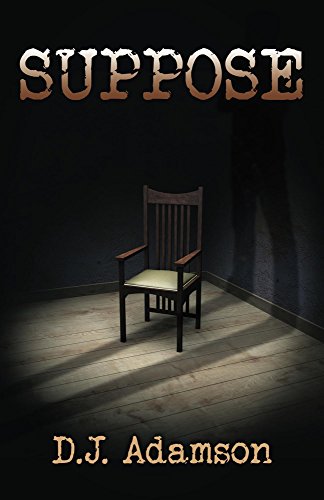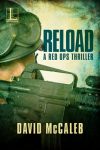

September 18 – 24: “What are some other countries that might take center stage in the future?”
 The Cold War is behind us, or is it? Russia still plays a key role in thrillers. This week ITW Members David McCaleb, J. H. Bográn, D. J. Adamson and Martin Roy Hill will discuss what are some other countries that might take center stage in the future. Scroll down to the “comments” to follow this riveting discussion!
The Cold War is behind us, or is it? Russia still plays a key role in thrillers. This week ITW Members David McCaleb, J. H. Bográn, D. J. Adamson and Martin Roy Hill will discuss what are some other countries that might take center stage in the future. Scroll down to the “comments” to follow this riveting discussion!
~~~~~
 D. J. Adamson is the author of the Lillian Dove Mystery series and the Deviation science fiction-suspense trilogy. Suppose, the second in the Lillian series has just been released. She also teaches writing and literature at Los Angeles colleges. And to keep busy when she is not writing or teaching, she is the Membership Director of the Los Angeles Sisters in Crime, Vice President of Central Coast Sisters in Crime and an active member of the Southern California Mystery Writers. Her books can be found and purchased in bookstores and on Amazon. Make friends with her on Facebook or Goodreads and LinkedIn.
D. J. Adamson is the author of the Lillian Dove Mystery series and the Deviation science fiction-suspense trilogy. Suppose, the second in the Lillian series has just been released. She also teaches writing and literature at Los Angeles colleges. And to keep busy when she is not writing or teaching, she is the Membership Director of the Los Angeles Sisters in Crime, Vice President of Central Coast Sisters in Crime and an active member of the Southern California Mystery Writers. Her books can be found and purchased in bookstores and on Amazon. Make friends with her on Facebook or Goodreads and LinkedIn.
 Martin Roy Hill is the author of the military mystery thriller The Killing Depths, the mystery thriller Empty Places, the award-winning DUTY: Suspense and Mystery Stories from the Cold War and Beyond, a collection of new and previously published short stories and EDEN: A Sci-Fi Novella. His latest mystery thriller, The Last Refuge, was published in March 2016.
Martin Roy Hill is the author of the military mystery thriller The Killing Depths, the mystery thriller Empty Places, the award-winning DUTY: Suspense and Mystery Stories from the Cold War and Beyond, a collection of new and previously published short stories and EDEN: A Sci-Fi Novella. His latest mystery thriller, The Last Refuge, was published in March 2016.
 David McCaleb was raised on a rural farm on the Eastern Shore of Virginia. He graduated from the United States Air Force Academy, served his country as a finance officer, patented his own invention, and established several businesses. He returned to the Eastern Shore where he currently resides with his wife and two children. Though he enjoys drawing, painting, and any project involving the work of hands, his chosen tool is the pen.
David McCaleb was raised on a rural farm on the Eastern Shore of Virginia. He graduated from the United States Air Force Academy, served his country as a finance officer, patented his own invention, and established several businesses. He returned to the Eastern Shore where he currently resides with his wife and two children. Though he enjoys drawing, painting, and any project involving the work of hands, his chosen tool is the pen.
 J. H. Bográn, born and raised in Honduras, is the son of a journalist. He ironically prefers to write fiction rather than fact. José’s genre of choice is thrillers, but he likes to throw in a twist of romance into the mix. POISONED TEARS is his third novel in English and has already garnered positive reviews and recommendations. Jon Land calls it “a splendid piece of crime noir.” Douglas Preston says it’s a first class roller-coaster ride. His other works include novels in both English and Spanish, short stories, screenplays. He’s a member of The Crime Writers Association, the Short Fiction Writers Guild, and the International Thriller Writers where he also serves as the Thriller Roundtable Coordinator.
J. H. Bográn, born and raised in Honduras, is the son of a journalist. He ironically prefers to write fiction rather than fact. José’s genre of choice is thrillers, but he likes to throw in a twist of romance into the mix. POISONED TEARS is his third novel in English and has already garnered positive reviews and recommendations. Jon Land calls it “a splendid piece of crime noir.” Douglas Preston says it’s a first class roller-coaster ride. His other works include novels in both English and Spanish, short stories, screenplays. He’s a member of The Crime Writers Association, the Short Fiction Writers Guild, and the International Thriller Writers where he also serves as the Thriller Roundtable Coordinator.
- LAST GIRL MISSING with K.L. Murphy - July 25, 2024
- CHILD OF DUST with Yigal Zur - July 25, 2024
- THE RAVENWOOD CONSPIRACY with Michael Siverling - July 19, 2024
